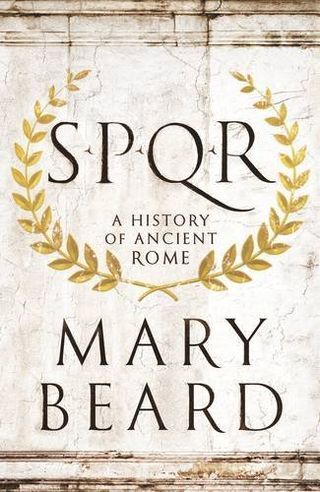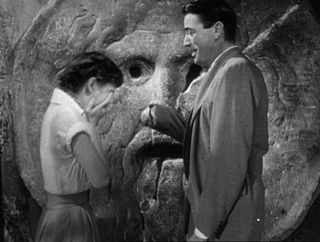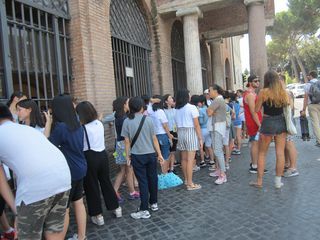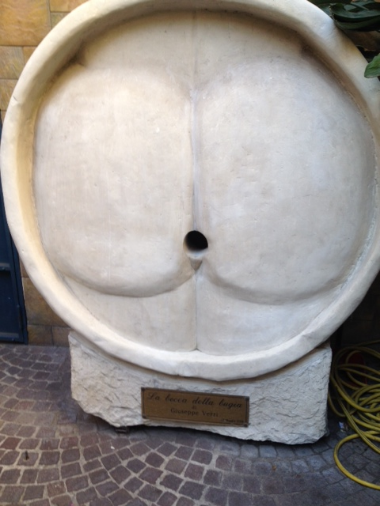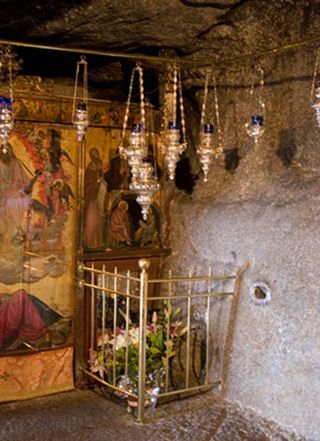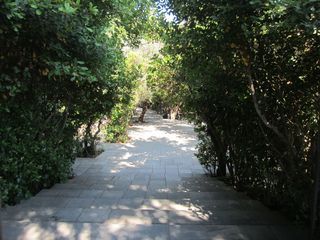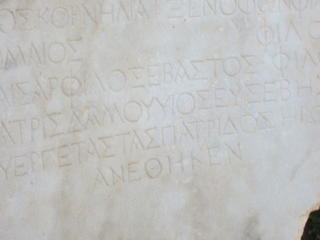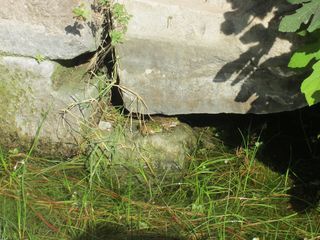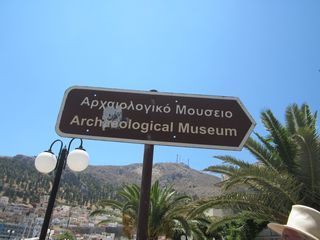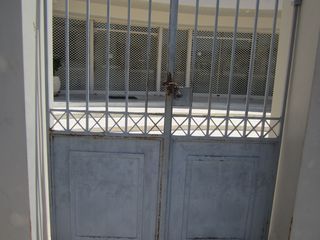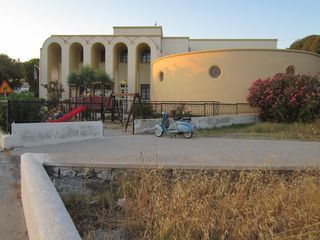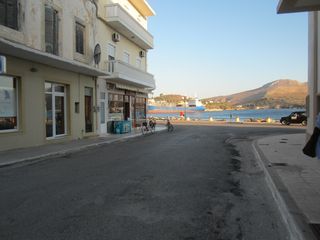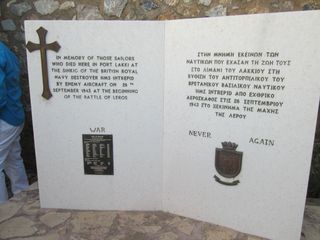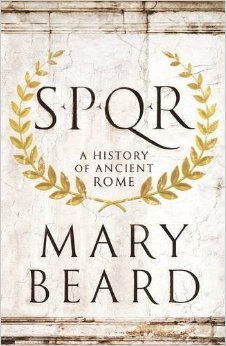Mary Beard's Blog, page 22
July 31, 2015
The very last stages of the book
OK, I think that this is very last post about the book before it actually comes out. It is all written, and is very soon to go to the printers, and I don't want you to think that this is all an advert, or that I am thinking about nothing else. (Far from it, as you'll soon see.)
The truth is, of course, that I am still spending all my waking hours on the book even now. That is partly writing the captions for the pictures. There's a hundred or so and I want each caption to add to what is there in the main text, I want it to be value-added, to reward the reader for paying attention to the image. So that is a bit of time. But it is also reading and re-reading the proofs and checking the maps. Many readers of this blog were very keen on maps, and I took that so seriously,that there will now I think be five in all. But they have to be checked and double and treble checked. (Oh sh** there are two places called Teanum in Roman Italy ...).
A lot of this, to be honest, is hard going, necessary, unemotional (not like writing) and not much fun. Most of it reveals one's own failings, the same joke repeated twice (no I didn't notice), or silly errors that one somehow just didn't notice. It's always good to check every ancient reference again, dreary as the task is, because it reveals a worrying level not of crass errors, but of not quite truths (hope I have found the all). But there are some bright spots. I especially like the design aspects.
We picked what I think is a rather elegant front cover, but it is slightly elegantly austere. So we thought that the endpapers needed to have a luscious richness , to reward the reader as they open it up. One idea (mine) was to have the 'Peutinger table' there. It would signal the big scale connectivity of the Roman empire, while hinting back to the real maps of the ancient world. But it still isn't quite luscious enough and it is actually medieval. So we decided to go for something really Roman and red preferably.
Not a difficult idea in principle as the Romans did have a nice line in deep red, but which image was it to be? That's trickier. Some images are too clich��d, some signal the wrong message (a flagellated woman for example....! err...). But after a few goes we found something just right I think.
Not going to tell you what it is just yet, but you''ll see!
July 25, 2015
Voting for a Labour leader
There is an easy sense of lack of responsibility about reflecting on how you would cast your vote in an election in which you have no franchise. I never renewed my membership of the Labour Party after Tony Blair became leader, and since then at successive election I have floated around the left. But if I were a member of the Labour Party, I would vote for Corbyn.
That's not because I think he would necessarily make a great prime minister, but because he actually seems to have some ideological commitment which could get the Labour Party to think about what it actually stands for, rather than think about the various ways to chase the middle ground. To put it another way, he might represent a change from the 'how do we adjust our policies to attract voters?' approach to a more 'how do we convince people to follow us?' line of attack.
And, despite the anti-hype, he has the guts to say that people like me should pay higher taxes -- which, uncomfortable as it might be at the margins (and only at the margins, to be honest), must be right. Anyway, how this country got so hooked on the idea that low income tax was a good thing, when reducing income tax is only achieved by raising a load of other taxes, beats me.
Indeed, the outcome of a Corbyn election might be messy, and it might lose Labour the next election. But if it shook the Party up a bit and undermined the dreary apparatchiks (and, sorry, I haven't been much impressed with any of the other candidates), then it might actually bring about a bigger change in the long run. The festina lente strategy, we might say. And, as one young friend of mine pointed out, if a Corbyn victory did lose Labour some support, that would probably be to the advantage of the Lib Dems -- and that would be an overall good. No one is best served by them going down the tubes.
Besides when Tony Blair comes in and suggests that people like me who would support Corbyn need a heart transplant, well ... I may be counter suggestible, but it makes me think that I might just be on the right lines.
So should I sign up again?
July 23, 2015
The mouth of truth
One of the strangest highlights of modern Rome is the Bocca della Verit�� in the porch of Santa Maria in Cosmedin. It is in fact a very posh and large ancient manhole cover, which sometime in the middle ages acquired a myth -- that anyone who told a lie with their hand in its 'mouth' would get that hand bitten off.
I'm not sure how famous the myth was (but the fact that the square around the church is called the Piazza of the Bocca della Verit�� suggests that it had some fame. But for most of us, it was the scene in the movie Roman Holiday that pushed it into celebrity. I remember when I first went there with my Mum in about 1976, there would be a small queue of perhaps four or five people all waiting there to put their hands into the 'mouth' to prove their innocence to their mates, before they went into the church. (I passed.)
I havent paid much attention to it since, so I was a bit surprised to discover a couple of days ago a really long queue... the majority of whom were never going to discover the delights of Santa Maria in Cosmedin.
So why, I wondered? Well one answer is that most tour guides are looking for sights that are actually free to show their paying customers. The more expensive the paying sites become, the more attractive it is to go to a free attraction. But then I discovered that there had been a Japanese film which parodied the Audrey Hepburn scene -- which might account for the preponderance of Asians in the queue?
All the same there was a sense of pointlessness in it. It was a sense obviously shared by a rather strange sculptor who had decorated the hotel in which I was staying. The Mouth of Lies....with a rather obvious reversal of the idea of 'mouth'. As you can see:
July 18, 2015
A Roman doctor on Cos
Despite my rather gloomy last post, there were some archaeological sites well up and running on our Dodecanese excursion. And we have a couple of ��� not terribly surprising ��� recommendations.
The husband was our guide around the cave and monastery of St John on Patmos. The cave (above) is where, according to some, the elderly saint dictated the Book of Revelation (after hearing a voice coming from a crack in the ceiling) and his gospel. Accounts differ on the precise details, but the fact is anyway that it is almost wholly an eleventh-century creation, doing up a cave into a little chapel, including a nice little sliver encrusted stone pillow where the saint rested his head.
The monastery itself was also eleventh century (and presumably preceded the embellishment of the cave), and has a very swish museum attached, with some stunning icons, a very unlikely El Greco, and a good collection of medieval manuscripts on display (plus a few remains from some earlier sanctuary of Artemis). It���s worth a visit, as a guidebook would say.
But the archaeological highlight for me was the Asklepeion (the shrine of the god Asklepios and healing sanctuary) on the island of Kos, which is pretty much the perfect site: not many people (there were only half a dozen or so, plus three smallish groups from a cruise ship while we were there ��� OK I know the Greek economy needs, more than that, but you know what I mean), shady trees and a nice caf�� serving proper juice.
It is hard to work out in detail how the place worked. But it is arranged on three terraces with a really whacking great temple of Asklepios on the top one. My favourite spot was on the first terrace.
A little shrine, with a statue base -- on which once stood (best guess) a statue of Nero. It was put up by a returning local notable, Gaius Stertinius Xenophon, who had been the doctor of a series of Roman emperors: Tiberius, Claudius and Nero. Here he dedicated the statue, describing himself on the inscription as 'philokaisar" (friend of the emperor), 'philosebastos' (friend of the imperial house), 'philopatris' (friend of his native land) -- and in a phrase that has been very obviously erased, I guess, 'philoneroneus' (friend of Nero).
The little niche clearly once had a water feature, and still sort of does -- the home now of a family of frogs. As you can see:
Oh by the way, Istanbul Airport tip. If you want a glass of wine landside, it's generally a bleak prospect. But head for Caffe Nero, which also has free wifi (which is how I am doing this) if you present a boarding card, and tables with electric sockets built in for charging.
July 16, 2015
Fair Greece, sad relic?
I have been spending the last few days on a boat between Greece and Turkey. This is my holiday, strictly speaking, but the truth is I have been mostly working on the book copy-editing when we have not been actually seeing something. It is, I confess, far nicer than the same activity carried out at the kitchen table.
We have beeb mostly in Turkey, so haven't seen much of Greece, only a few places in the Dodecanese really; but without committing myself to any view on the bailout (beyond observing, as many others have, that the Greeks seem to have got worse terms after the referendum than before), I must say that where we have visited does seem rather sad, lifeless and slightly despairing compared with all our memories of other visits here.
I don't mean there have been vast queues at the bank machines. I haven't actually seen a single one. But  the town squares and restaurants in places like Kos and Kalymnos which in the past have been heaving with people have been more or less deserted, with precious few Greeks or tourists. It doesn't seem that anyone is spending any money. And apart from the big museums and sites, the archaeology is pretty much closed for business too.
the town squares and restaurants in places like Kos and Kalymnos which in the past have been heaving with people have been more or less deserted, with precious few Greeks or tourists. It doesn't seem that anyone is spending any money. And apart from the big museums and sites, the archaeology is pretty much closed for business too.
We had wanted especially to visit the new Kalymnos Archaeological Museum (which has got some splendid newly discovered bronze statues found underwater) and had carefully checked its website for its opening hours. Now the relationship between advertised times and real opening towns in local Greek museums has always been a bit 'relaxed'. But in this case, after a long hot walk, it seemed fairly clear that it was pretty firmly shut for the duration, despite the same opening hours paraded next to its front gate.
Not all was so disappointing, however. For a Dodecanese tip, I would recommend a visit to Leros. It is an island with a sad history in all kinds of ways (including a notorious prison and equally notorious asylum), but for those with half an interest in mid twentieth century architecture and civic/totalitarian planning a visit to the town of Lakki on Leros is a must. In part of the Italian impetus to Italianize the island during their occupation of it, they set about building an Italian fascist town there (that's the school above). Striking architecture, familiar from hundreds of places in Italy itself...and strikingly (and memorably) incongruous in a little Greek island village. As you can see from the pictures below, there have obviously been some recent attempts to restore it, but from the look of it they have been rather stopped in their tracks.
There are also some rather touching war memorials, both British and Greek from the eventual Battle of Leros in the Second World War: 'War Never Again'
July 11, 2015
Name and shame
My university is building what most people would call a new campus, usually known as 'North West Cambridge'.I am largely convinced that this is the right thing to do.There isn't enough space for a growing university in the town centre, and there is woefully not enough reasonably priced accommodation for graduate students or staff.
So I am therefore being tolerant about the fact that a large village-cum-small town is being built a few hundred yards up my road (nimby, moi?). That means 1500 homes for uni staff, 1500 private houses, accommodation for 2000 graduates students, a school, shops, hotel and a care home (that might come in useful one day), as well as more strictly uni stuff.
The university is, of course, being an aggressively responsible developer. The whole site is being archaeologically recorded, there is all the required public art planned, and it's as sustainable as anyone could dream of (cycleways all over the place). And the neighbours are being regularly kept informed with leaflets written in slightly over-enthusiastic tones about how exciting it all is.
But, as usual, it is easier to get exercised about the relatively trivial than about the big picture (like how much extra exhaust etc will waft down our road). So I have been thinking about what all this is going to be called ���. I mean the new roads and streets and so on.
Here it is a bit difficult to get a completely clear picture. The University���s own mouthpiece, The Reporter ��� now sadly only available online ��� had one very carefully worded statement last year announcing the good plan to name two of the new streets, after distinguished female scientists: Philippa Fawcett Drive and Ada Lovelace Road (I wonder how they decided who got the ���Drive��� and who got the ���Road���). It was a cheering start.
But now the development���s own website has ideas that look a bit less attractive and includes some decidedly odd ideas (the strategy of choice is "based on principles of natural naming"... since when was naming "natural"?). Some of the places are to be named after areas of the farm that was there before all this stuff was built. There is to be a Brook Field, a Five Acres and Spinney Pasture. These might be all bona fide ancient names, but they do reek a bit of the Archers or fictitious Lymeswold cheese (remember?).
But rather more gloomy from my point of view is the proposal to name street after Cambridge Nobel Laureates, distinguished as they are. For that means Dorothy Hodgkin is the only lady among the Diracs, Huxleys and Ryles. And it means that Cambridge's humanities traditions dont get much of a look in. Where, for example, is James Frazer or the Leavises, or Jane Harrison... or Pepys for heaven's sake. Happily the suggestions sent in by "the local community" redress the balance a bit, and include for example Dorothy Garrod, the archaeologist. But I am sure we could do even better.
July 9, 2015
What price customer loyalty?
One of the knock-on effects of having loads of final stage book checking to do is that -- if you're me -- you tend to have a lot of Radio 4 on in the background. You start the day with "prayer for the day" (that is the younger brother of "thought for the day" that is broadcast at about 5.40), you move on through the Today Programme, and before you know where you are, after a touch of Melvyn Bragg and Kate Adie, you have made it to the World at One. To be honest, barring world tragedies, things don't generally change much between 8.00 and 1.00 . But often my bafflement at the premises increases as the day goes on.
Today the cause of that bafflement was the story about the "Big Six" Energy companies, and how we consumers aren't shopping around enough to find the best deals, and how the companies aren't encouraging us enough to do that.
When you've heard this several times in the morning, you become a bit counter-suggestible, or at least I do.
The logic seemed to be that a healthy and cheap energy market depended on me and fellow consumers going online at regular intervals to seek out a deal with a new supplier that might offer a great new entry deal. We were mugs if we didn't shop around and simply stayed with the same supplier. Go for the bright new offer for new customers, dont stick with the same old.
Part of me thinks, what a waste of human hours it is for us all to be surfing the web to find a better offer for basic services. Another part of me thinks that in another world (one I used to know), it was the long standing loyal customers that got the best deals, not those coming in for a quick entry offer for 'new boys'.
Another part of me wonders why on earth basic services are not just one tariff for all, under state control. Why on earth have a price competition for turning on the lights?
July 5, 2015
Self-judgement
I dont know if any readers have kept any of their old school or student essays. I certainly have some of my student ones, which I come across from time to time. I can't actually remember where they are, but they are somewhere deep in some cupboard that I penetrate occasionally when I am having a major search for some lost item.
The odd thing is the varied reactions I have to them. Sometimes, I look one over and am ever so impressed by what I once knew (more by the knowledge than the argument, it must be said). Sometimes, I blush with embarrassment at the naivety and errors. I expect it's more to do with my mood than the essays themselves. But one thing's for sure, at a distance of 40 years they appear either excellent or hopeless, never in between.
For me, that's a bit like going through the new book in response to the copy editors suggestions. The truth is that I did more or less finish when I said I was going to ... and have moved on to reading through everything again. I should say that I am not the kind of girl to get cross with copy-editors. I have worked with the excellent Juliana before and I reckon that I agree with her on about 80% of her suggestions and corrections, and on the 20% where I don't she usually makes me think again.
But the experience of reading the stuff through in a different format makes you see it differently -- a bit like those old essays. You love some parts in a different way, and you feel sheepish about other parts in a way you would rather not. And, of course, you spot the kind of half errors you would rather you hadn't made. I have not found any crass errors, but I have found a few things that are less right than I would like them to be. And I wonder how I ever managed to write the word "parade" three times in the space of four lines beats me.
And in the interests of total disclosure, I should say that I am writing this in Italy, at the end of a thirteen hour day, and after a campari spritz
July 1, 2015
Tragic travel
Let me start by saying that I can imagine little worse than saying good bye to my parents or children or friends off an on innocent beach holiday and then being confronted not just with their cruel and apparently arbitrary death, but with my grief, and their suffering, being in the full glare of publicity.
There is nonetheless an uncomfortable, semi-symmetry between those travelling north across the Mediterranean to their deaths, and those travelling south. On the one hand, those escaping oppressive regimes across Africa and the Middle East drown in their thousands in leaking vessels run by human sharks, as they flee terror. On the other hand, northern Europeans seeking sun and a holiday break get gunned down by the very terror that is sending people to their deaths in the opposite direction.
It's hard to know which is worse. But I am sure that historians in two hundred years time will look on the geopolitics of the 21st century as in many ways incomprehensibly mad.
How was it, they will ask, that Europe went on trying to police its un-policeable and porous borders, when disparities of safety and stability, let alone economic prosperity, meant the pressures were unsustainable? You can send out marine missions as often as you like, but if desperate people know there is a better life here -- then all you can do to solve the problem long term is to think about solving those underlying disparities, rather than by blowing up already leaky vessels. (OK I know it's easier said than done, but you know what I mean.)
And how was it, they will ask, that northern Europeans came to take it for granted that they could go and soak up the sun on the beaches of poorer southern European and north African countries? I am not pointing the finger at anyone here. I take it for granted, as much as anyone else does, and I make for the Mediterranean for a summer break if I am lucky enough to have one. But when exactly was it that most of us started to think that 'time off' meant sunbathing on the shoreline of some relatively poorer country. And when was it that those relatively poorer countries started to stake their most of their economy on tourists like us, staying largely in foreign-built hotels (rather than, for example, actually making something), and so to make us and them vulnerable to exactly what tragically happened in Tunisia.
Hard questions, but just what we will be asking.
June 28, 2015
The die is cast
Ok I know you will think that you have heard this before, but the book is now within 1000 words of being completely finished. I am just tying up the epilogue, and if I get a good day at it tomorrow I may wrap it up (if I dont, then, yes, it could drag on till Thursday...after which I have no leeway ... hope I am not tempting fate here).
When I say completely finished, I don't actually mean completely, of course. I mean that the creative, staring-into-the-abyss bit has been done. Enough so that if I were to collapse and die tomorrow, it could be published in my name. What still remains are some of the lengthy, nitty gritty, frustrating and anxiety making stages. I mean things like the acknowledgements, where the terror that you will forget to thank someone who has been instrumentally helpful is almost as bad as staring into the abyss, the photo-captions and selection (what are the chances of inadvertently getting one the wrong way round?), the maps (worst of all) and the Further Reading and Timeline (on which I have to say I have had some help... thank you Hannah, in case I forget later).
I suppose, I 've been wondering if you blog readers have any tips for what you like to see in these back bits of a book, which does not have footnotes. My own view is that the Further Reading section should point the reader in the direction of a) obviously "further reading" and b) give them a clear idea of where to find pieces of info or references that may not be obvious from the main text (ie if the text says "In the first book of the Aeneid, Virgil says...." then no further reference is required, on the grounds that anyone who want to can find the passage; if it says, on the other hand "Plutarch at one point mentions", it does need to indicate that it is in, say, The Roman Questions). I also intend to have a little section saying where, physically some of the objects I mention can be found.
The maps will have marked most of the places mentioned in the text (I wonder if anyone looks at them, but there you go), and the picture captions will be quite long and try to be interesting, ie they will reward the reader who is bothered to read them with extra info.
There will be no dedication I think???
Anyway, I would love to hear your loves and hates on this score.
And at the risk of self advertising, I am now prepared to point out that (much as I disapprove of Amazon in many ways) it is now pre-orderable at a good price!
Mary Beard's Blog
- Mary Beard's profile
- 4110 followers


